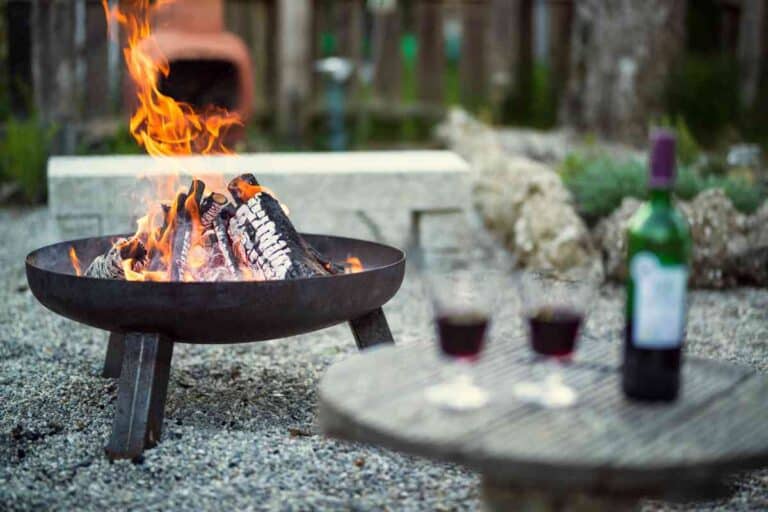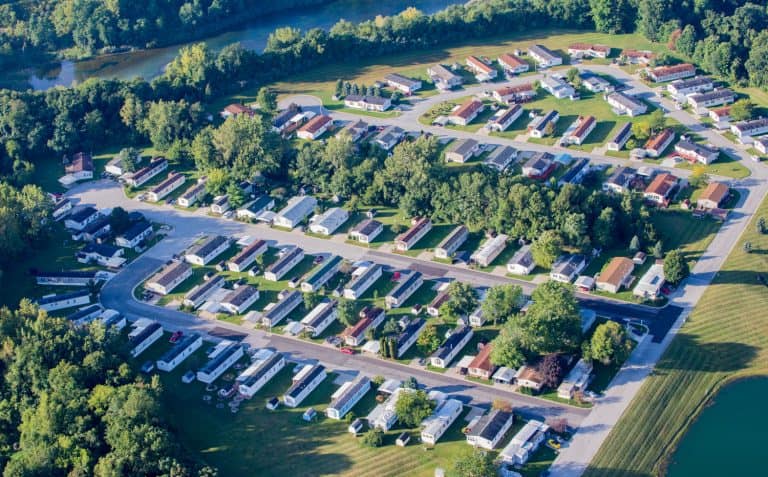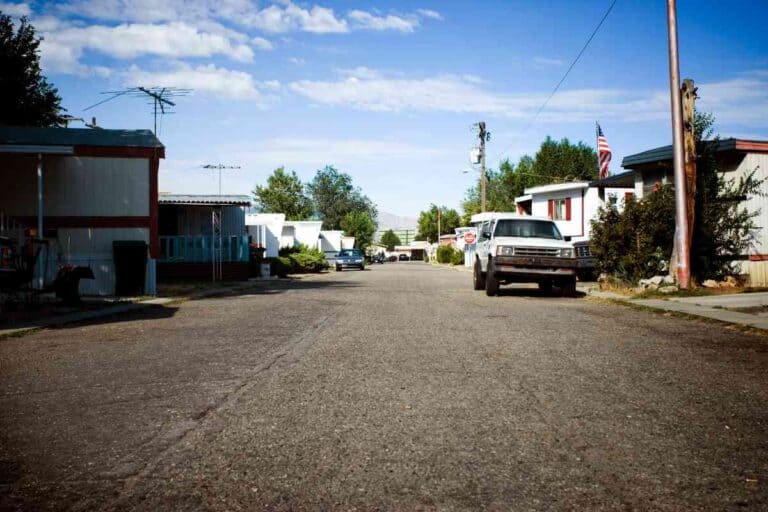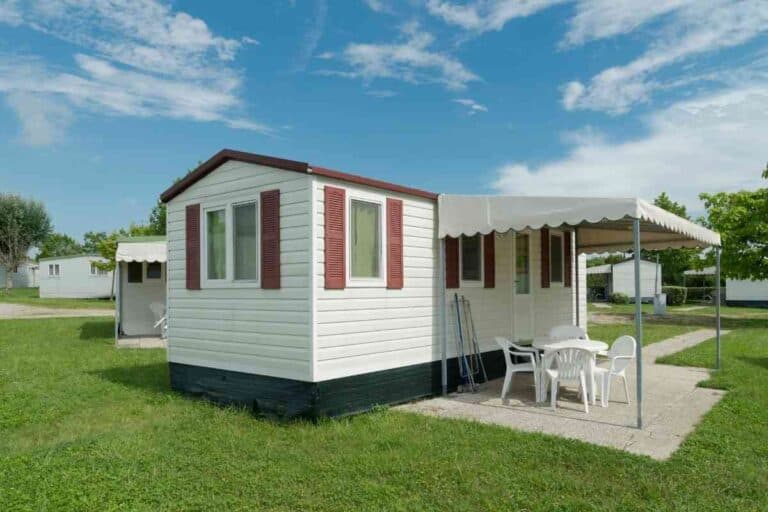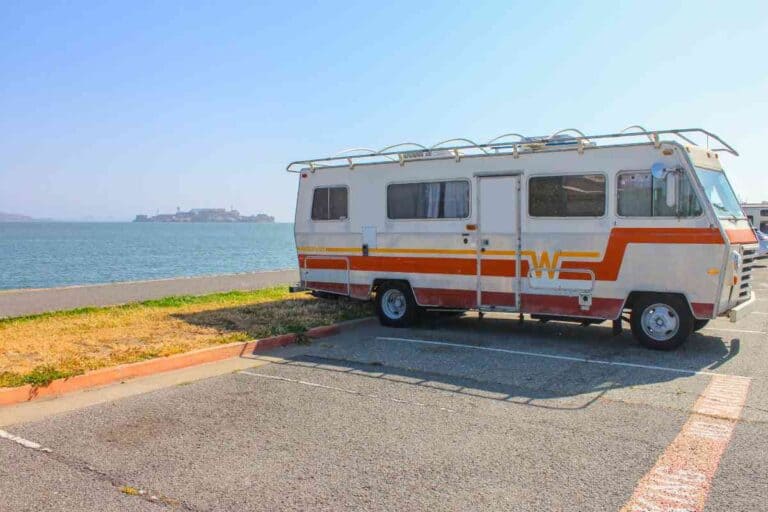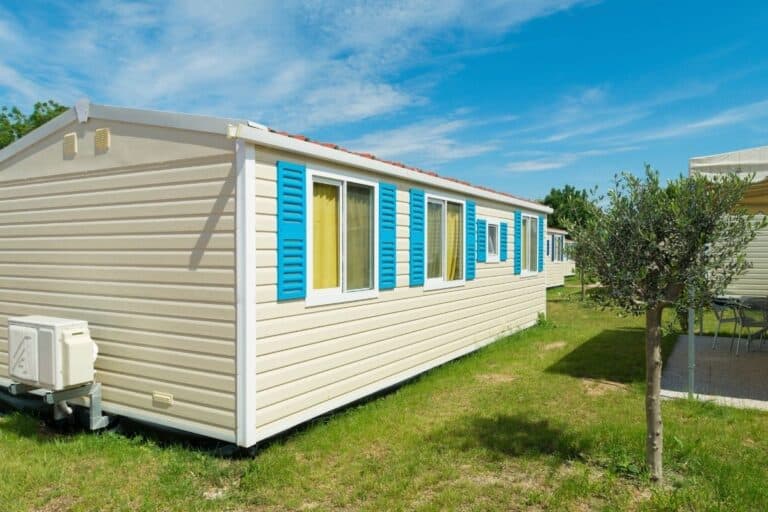Can Solar Panels Go On A Mobile Home Roof?
Solar panels can free you from the grid while saving you a lot of money.
Today, we’ll help you figure out if solar panels are a practical choice for your mobile home.
Can Solar Panels Go On A Mobile Home Roof?
Most mobile homes lack roofs sturdy enough to support a standard array of solar panels. However, roofs can be reinforced and portable solar power kits provide a small-scale alternative. Solar panel installation must follow local building codes.
Can mobile home roofs bear solar panels?
The simple answer is “technically yes, but it’s complicated.” Your options are limited when it comes to installing solar panels on a mobile home roof.
Most of these roofs just aren’t designed to handle the weight of a full solar setup.
Even with a custom-built foundation home, weight and roof integrity can be vexing issues.
Generally speaking, manufactured homes have smaller roof joists than their conventional counterparts.
This will severely limit how much weight your roof can safely bear.
There are workarounds, however.
Hypothetically, you could renovate your mobile home roof to increase its load-bearing ability.
You’ll have to do a careful analysis to determine if this is cost-effective for you.
Can My Roof Hold The Weight Of Solar Panels?
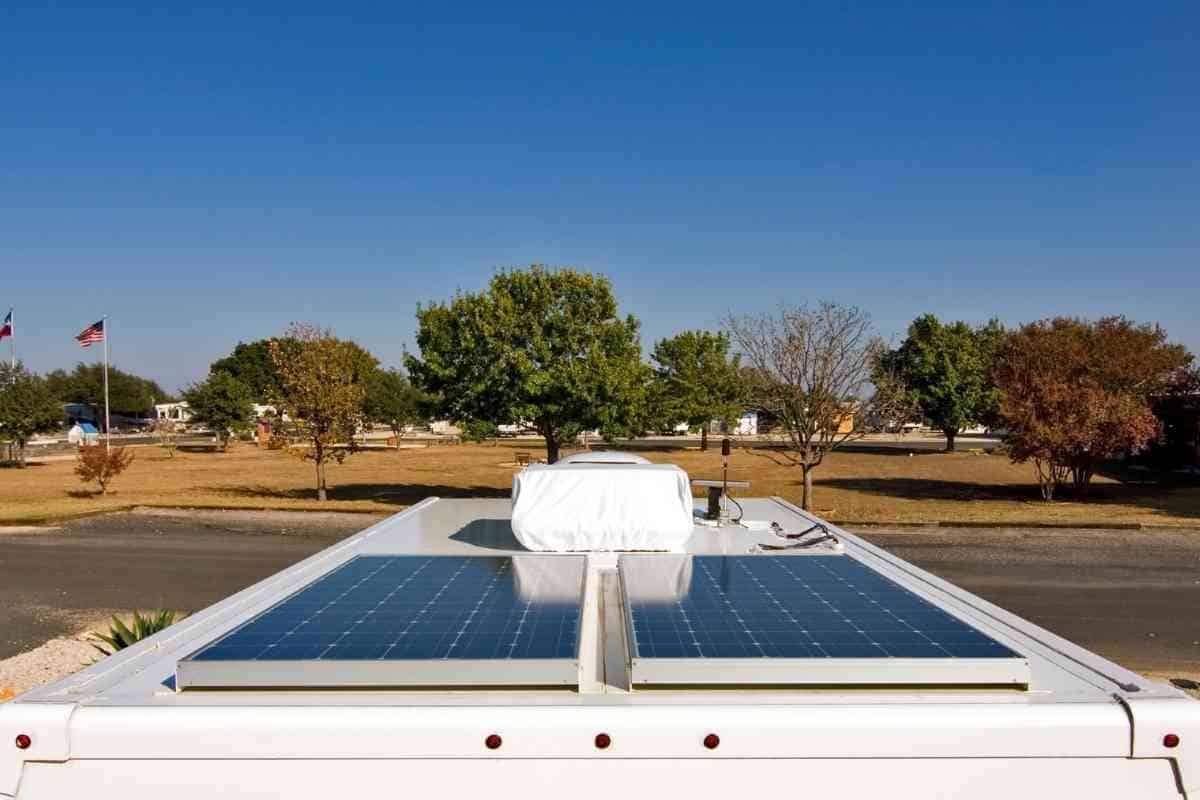
Your typical solar panel array weighs hundreds of pounds.
In addition, your roof will need to bear the weight of several solar panel installers.
If your roof is shingled or tiled, it is already bearing considerable weight.
Mobile homes with asphalt and rubber roofs are typically better suited for solar installation.
Even if your roof can physically bear the weight of a solar setup, you’ll have to reckon with local building codes.
Wherever you live, the local authorities likely have strict standards for structural add-ons.
Local codes are based on the International Building Code, which restricts solar panel installation to structures permanently anchored to the ground.
Still, building codes do vary by county and city.
Your trusty local installers will be well aware of relevant local building codes.
If you are permanently or semi-permanently based in an RV park, it might be a better idea to install solar panels on the ground.
Though you’ll have to receive permission from the property owner, you’ll find that quite a few property owners are open to solar allowing installation.
Solar power is an exciting technology that brings people together.
How Do I Know If My Roof Is Good For Solar
The best way to find out if your roof is compatible is to talk to a trusted local solar installer.
These professionals depend on word-of-mouth advertising and strong community relationships.
As much as they want your business, they won’t install panels unless it is safe and legal to do so.
If an installer won’t install for you, you can be sure they are holding back for your own safety.
Can Solar Panels Be Installed On A Flat Roof?
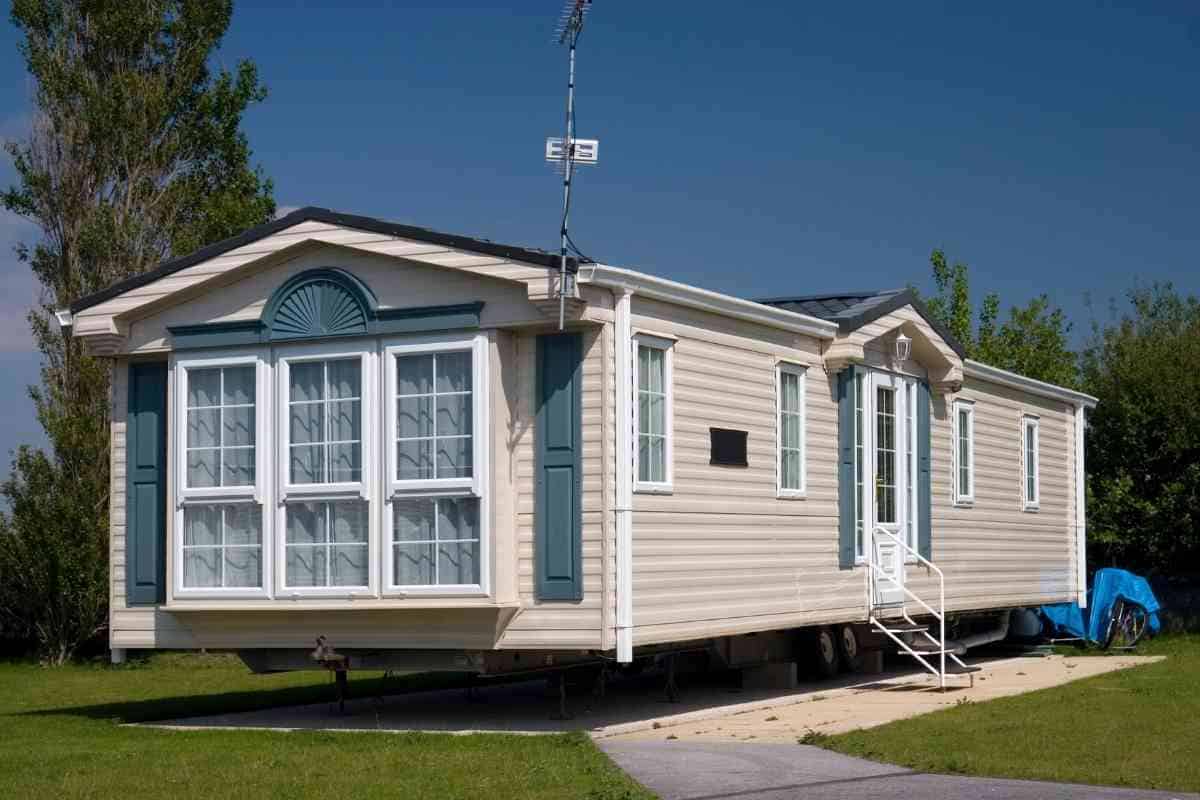
You should have no problem installing solar panels on a flat roof.
In fact, there are even positive benefits to installing on a flat roof.
For example, these panels may be less visible, which you may consider to be more aesthetic.
You’ll need to make sure you secure the right panels and make sure your home is properly situated.
To get the most out of your solar setup, you won’t want to be near trees or other large objects that block you off from the sun.
Even your flat-roofed home is near obstructions, you still have options.
Tilt-up mounts can tilt your panels to the traditional angle of 25 degrees.
There are definitely some downsides to setting up flat panels against a flat home roof.
Flat panels get dirtier as time passes, which means you will have to clean them more often for cost-efficiency.
Throughout the Nothern Hemisphere, panels that face south face the sun more.
Naturally, this will be less of a concern if you live in one of the sunniest regions.
Installing solar panels flat can potentially void your manufacturer’s warranty.
This is because flat solar panels are prone to accruing water deposits.
Each solar panel is sealed to keep water away from the most sensitive parts of the panel.
Nevertheless, flat installation will shorten the life of your panel.
If you plan on installing solar panels yourself, be aware that many solar kits are specifically designed for slanted rooftops.
If in doubt about whether the panels will work for a flat roof, contact the manufacturer.
If you plan on installing panels yourself, you could always call an installer for tips on properly positioning the panels on your roof.
Portable Solar Panel Kits
If permanent solar panels aren’t practical for you, you can always invest in portable solar power kits.
These kits include small solar panels that you can deploy just about anywhere.
Because these panels capture less energy, they are less cost-efficient.
Therefore, you might not be able to use a portable solar panel as your sole source of energy.
Nevertheless, even this modest solar investment can make you more energy-independent and self-reliant.
Your mobile home’s age will affect it’s solar-readiness.
Supposing your mobile home was made in 1990 or later, the home should have all of the necessary wiring for off-grid electrical installation.
On the other hand, mobile homes manufactured prior to 1980 are not usually solar-compatible.
Why Solar Panels Are So Effective
Solar panels can significantly reduce your monthly electricity costs.
In some areas, you can actually turn a profit by harvesting the sun’s energy.
In other words, you’ll be able to power your home and sell excess energy to the local energy company.
The amount you can save depends on the cost of electricity in your region, your electricity usage, and how much sunlight you can access.
Besides providing you with immediate financial benefit, solar panels can provide you with a lot of satisfaction.
Solar power is clean energy that produces zero climate-changing emissions.
When you invest in solar panels, you can be confident you’re helping yourself and the Earth at the same time.
After initial installation, upkeep costs for solar panels are next to nothing.
Additionally, quite a few governments offer tax incentives for installing solar panels.
Finally, installing solar panels can potentially increase the value of your home.

